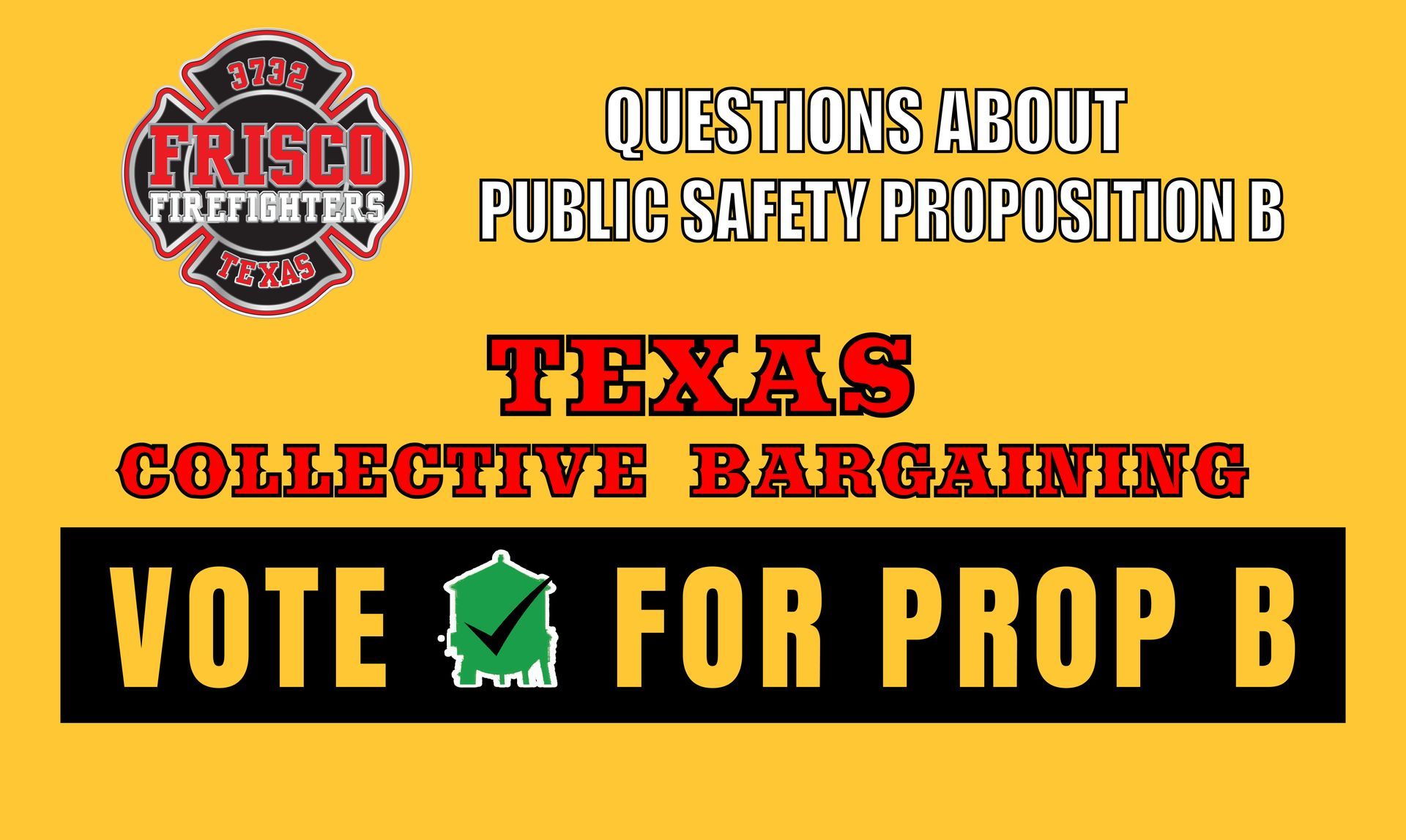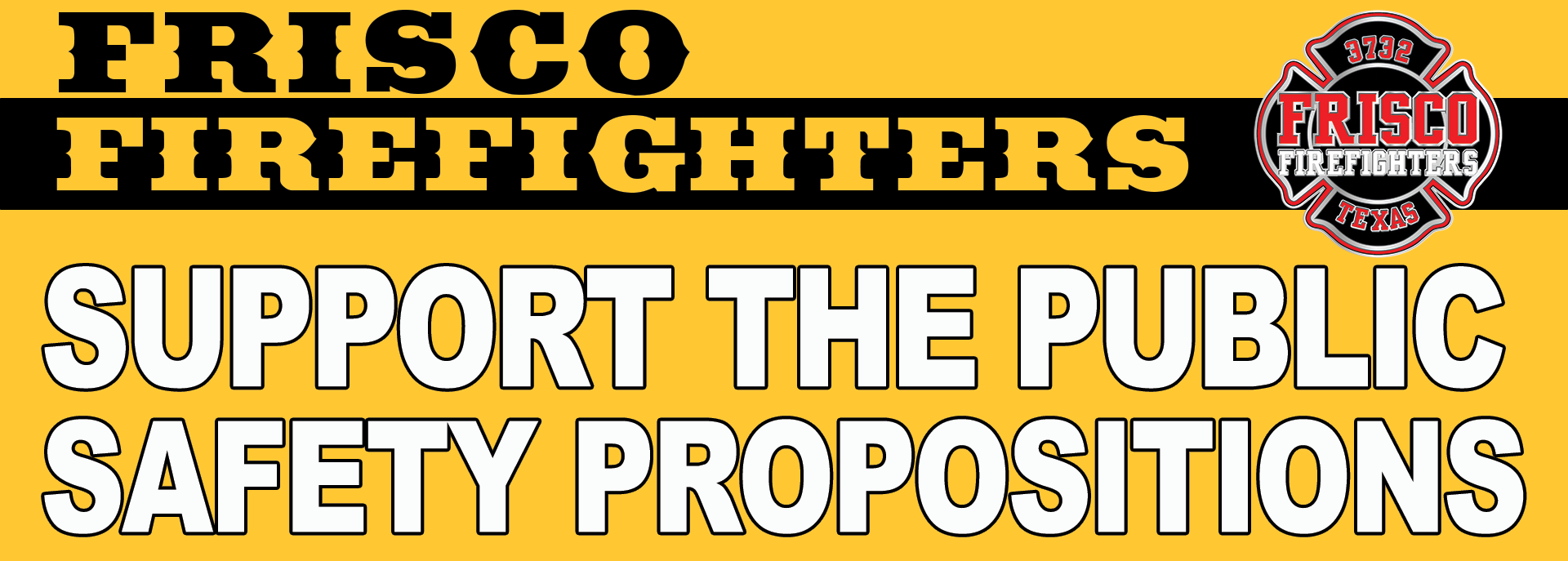
-
What is Collective Bargaining?
Collective bargaining is a process that allows firefighters to negotiate pay, benefits, and working conditions with the city through a contract known as a collective bargaining agreement.
Texas Local Government Code Chapter 174 outlines the collective bargaining process and rights for employees of many Texas cities.
Frisco firefighters have made it clear from the beginning that their main objectives are to guarantee safety at every level, wherever it is possible. This includes bargaining for requirements that the city standardize the number of firefighters to meet or exceed national safety standards. Firefighters want to focused on reducing response times and improving public safety.
The goal of collective bargaining is to ensure that the compensation and benefits provided to fire fighters are competitive and fair to both the city and the employee.
-
Will fire fighters be required to join a union?
No.
Texas law prohibits any organization from requiring membership in any employee association, union, or group.
Collective Bargaining does NOT change that.
In fact, Texas law guarantees that employees who choose to not join their respective employee association shall receive the same bargaining opportunities, benefits, and wages as every other employee in the same class.
-
What process or requirements would Collective Bargaining place on the City of Frisco?
The City of Frisco would be required under the Collective Bargaining law to recognize the group chosen by the majority of Frisco firefighters as their exclusive bargaining representative.
The City would be further required to meet and bargain in good faith with the chosen group to negotiate over mandatory subjects of bargaining such as wages, benefits, hours, and mutually agreed upon working conditions.
The law requires that the city work to offer wages that are commensurate with similar skilled work in comparable industries within the private sector. This does not obligate the city to any particular wage but rather ensures that the city will bargain to fairly accomplish one of the primary goals of the Texas legislature in drafting the law, that cities can attract, hire, and retain the best and brightest.
The City of Frisco would retain management rights to set broader department policies and directives regarding the operations of the Fire Department.
-
What costs are associated with implementing Collective Bargaining?
There are no explicit costs associated with the implementation of Collective Bargaining.
In fact, cities and fire departments negotiate contracts and agreements with their staff attorney, city managers, Fire Chiefs, and HR.
Most Texas collective bargaining cities do not employ or hire outside firms to bargain contracts but rather assign members of the council, City Manager's Office staff, or HR personnel with a representative from the Fire Chief's office.
Similarly, most Texas firefighters' associations with Collective Bargaining do not hire outside counsel, contractors, or attorneys to bargain on their behalf either.
Collective bargaining is a collective process to meet in the middle through honest negotiation and transparent budget analysis.
-
What happens if the City and fire fighters cannot come to an agreement?
Under current state law each party has the option to either remove the issue of disagreement from the contract and pass the remainder of the contract or to pursue third-party, neutral arbitration.
As a measure of last resort, a lawsuit may be filed to compel a court to weigh in on certain matters of the contract. However, this process is rare, expensive, and usually an inefficient solution to disagreement.
Fire fighters and cities across Texas have found success in establishing a "binding arbitration" clause in their first contract. This simple, mutually agreed upon article builds in a safeguard to any disagreement and brings in a random, neutral arbitrator to rule on issues that cannot be reasonably negotiated.

Pol. Adv. Pd. for by Frisco Fire Fighters Committee for a Responsible Government
